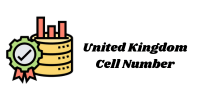Databases are an essential component of modern-day applications, and they store some of the most sensitive information in the world. From personal identification numbers to medical records, databases hold a vast amount of data that needs to be kept safe and secure. Unfortunately, there are many cases where databases are abused, leading to the exposure of this sensitive information. In this article, we’ll explore what special database abuse is, the impact it can have, and how to avoid it.
Special database abuse refers to the unauthorized access, modification, or destruction of data stored in a database. This type of abuse is often carried out by insiders with legitimate access to the database, such as employees or contractors. Special database abuse can also be carried out by external attackers who manage to gain access to the database through vulnerabilities in the application or infrastructure.
The impact of special database abuse can be severe
Leading to data breaches, loss of revenue, and damage to an organization’s reputation. In some cases, special database abuse can even lead to legal action, fines, and penalties.
Here are some examples of special database abuse:
- Unauthorized access: This occurs when an individual gains access to a database without the proper permissions. For example, an employee may use another employee’s login credentials to gain access to a database they shouldn’t have access to.
- Data modification: This occurs when an Latest Mailing Database individual modifies data stored in a database. For example, an employee may change a customer’s address to their own, so they can receive the customer’s mail.
- Data destruction: This occurs when an individual deletes data stored in a database. For example, an employee may delete all customer data before quitting their job to cause damage to their former employer.
To avoid special database abuse, organizations should take the following steps:
- Implement access controls: Access controls limit the individuals who can access a database and the type of access they have. For example, an organization can limit access to a database to only those employees who need it to perform their job.
- Monitor database activity: Organizations should monitor all database activity to identify any suspicious behavior. For example, if an employee accesses a database outside of their regular working hours, it may indicate unauthorized access.
Conduct regular security audit
- Regular security audits can help identify vulnerabilities in an organization’s infrastructure and applications. For example, an audit may reveal that a database is not encrypted, making it susceptible to external attacks.
- Provide security awareness training: Organizations UK Cell Number should provide regular security awareness training to all employees who have access to a database. This training should cover topics such as password hygiene, phishing attacks, and social engineering.
In conclusion, special database abuse can have severe consequences for organizations and individuals alike. To avoid special database abuse, organizations must implement access controls, monitor database activity, conduct regular security audits, and provide security awareness training. By taking these steps, organizations can help ensure that their databases remain secure and that sensitive information stays protected.


